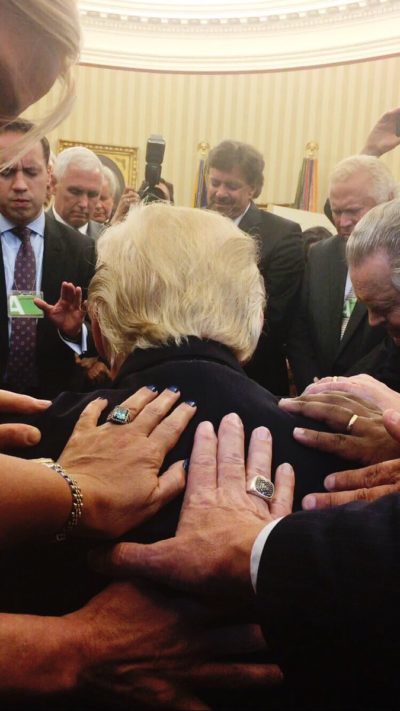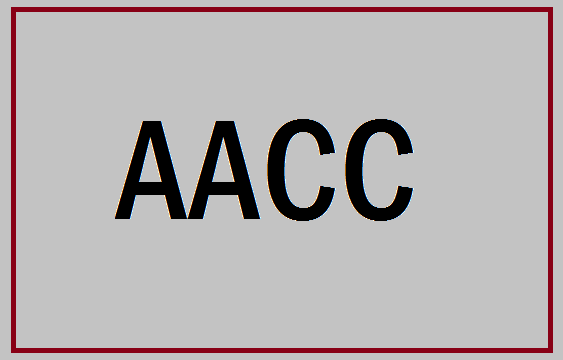As students approach graduation, they often consider the next phase of their work. Joining a professional association is one aspect of professionalization. I hope psychology students at grad and undergrad levels consider what Central Baptist College Prof. Aaron New has to say below.
The AACC has been promoting its upcoming World Conference this October. One of the special events of the conference is the “Connect U & Young Professionals Panel” targeting college students and recent graduates.
1. As I noticed these promotions last week, it occurred to me that I wish I would have known about the AACC as a recent graduate what I know now. I invested in the AACC for many years, and did so rather blindly for three reasons. One, the organization seemed to be the only (or main) show in town. Two, AACC conferences had all the big names in Christian counseling. Three, my professors encouraged me to be involved. I didn’t ask any questions or pursue any other options. But I regularly gave the AACC my money in membership dues and conference expenses to be part of the club.
If I had it to do over again, I would want answers to some questions before making the same commitment. What follows are some questions I encourage students and new professionals to ask AACC leaders and supporters. I will begin with those for which I already have some answers, then I will suggest others. The AACC may not like addressing these questions, but it is not unreasonable to ask them to do so.
Is the AACC a member-driven organization? How do members participate in the group?
The AACC is *not* a member-driven organization. It is a for-profit business owned and operated by Tim Clinton. Members don’t vote on anything or participate in governance of the organization. Principally, they form a pool of consumers for AACC marketing efforts. There are no requirements or pre-requisites for membership other than a willingness to pay membership dues. https://www.aacc.net/memberships/
In most professional associations, members serve on committees which serve the profession. Policies are suggested to the governing board made up of representatives elected by members. Those representative deliberate and vote on items suggested by members. Members have input into the rules, ethics and policies that govern the profession. Not so in the AACC. All decisions are made by Tim Clinton. He may use input from others but there is no requirement that he do so.
2. Does the AACC have officers? Who are they? How are they determined?
The AACC does *not* have elected officers. Though Clinton promotes himself as the “President” of the AACC, this is a self-appointed title and the position is not voted on. Any other officers are staff hired by AACC and are not elected. The president and staff are not accountable to members.
3. Does the AACC have a board of directors? Who are they? How are they determined?
The AACC does *not* have a typical elected board of directors – one that oversees the operation and direction of an organization. Dr. Clinton is not accountable to a board and may run his business in any way he sees fit.
4. If there is any other kind of board?
The AACC has advertised several different boards over the years. For many years up to 2018, the AACC claimed to have 1) an Executive Board, 2) an Editorial Board, 3) a Business Advisory Board, and 4) a Clinical and Pastoral Advisory Board (see: http://old.aacc.net/about-us/leadership/). In 2018, the AACC began to promote a different set of boards. 1) an Executive Advisory Board, and 2) a National Board of Reference (see: https://www.aacc.net/wp-content/uploads/2018/01/AACC_Board.pdf).
I will make two observations here. First, I have been told by multiple sources that the AACC boards only serve in an “advisory” role. They give input when asked, which seems to be a rare occurrence. Second, the boards do not appear to be updated very often. In 2017, I brought it to the attention of the AACC that William Backus was still listed among the members of the Clinical and Pastoral Advisory Board even though he passed away in 2005. After repeated requests for a more current list of board members, I was told by a customer support representative, “I have asked 2 different people for lists of the board members, and all the lists I have received do include the gentleman you listed below. That is the most up-to-date list that we have.”
5. How are ethical complaints against AACC members submitted and how are they handled?
The AACC does have a code of ethics. But I am suspicious of how well they enforce this code. Consider this correspondence from September 2018. Readers will notice that it takes some time for the AACC to respond. In the end, the AACC refuses to indicate who serves on the Law and Ethics Committee or how to submit a complaint to them directly (as I think is instructed by the code of ethics). Instead, the AACC states that ethical complaints are to be funneled to the person in charge of public relations for the AACC.
6. How does the AACC decide when/where to be active in political debates and races?
The politicization of the AACC has been a concern of mine for some time now. I began asking Dr. Clinton to avoid politicizing the AACC back in 2016. I felt strongly enough about this issue, that I attempted to write AACC board members. This letter became incorporated into an online petition that gathered 190 signatures, though I’m not sure it was very effective.
7. The AACC Foundation is the nonprofit arm of the AACC. What does it do? Where is the data/evidence of this work? Does the AACC profit from the AACC Foundation?
The publisher of this blog has looked into the relationship of AACC to the AACC Foundation in two articles (here and here). In summary, the AACC Foundation is a nonprofit means of getting income to the AACC. A miniscule amount goes to charitable purposes.
8. The AACC lists several colleges and universities as “partners” (https://www.aacc.net/schools/). What does this mean, exactly? How does a college/university become a partner? What advantages or benefits do these partners have for AACC members?
9. Since the AACC isn’t a nonprofit like other professional associations, where do the profits from the AACC go? Why doesn’t the AACC disclose financial statements like other organizations do?
10. Who serves on the Law and Ethics Committee of the AACC? How are members determined/appointed?
11. How many AACC members have had their memberships revoked (or been otherwise sanctioned) for ethics violations? For what reasons?
12. What is AACC’s “Christian Care Network” and how does it differ from the new “Christian Care Connect” (that charges clinics/organizations $749/year and individuals $249/year)?
13. To become a member of the CCC, is anything required beyond paying the annual fee? How is the integrity of this referral source maintained? What assurance does the public have regarding the legitimacy of these referrals?
14. What is the relationship between the AACC and all of these organizations? Is there one or more parent companies involved? What loyalties (formal or informal) do these organizations have to each other?
-
- Light University – https://www.lightuniversity.com/
- International Board of Christian Care – http://www.ibccglobal.com/
- Board of Christian Professional & Pastoral Counselors – http://www.thebcppc.com/
- Board of Christian Crisis & Trauma Response – http://www.thebcctr.com/
- Board of Christian Life Coaching – http://www.thebclc.com/
- International Christian Coaching Association – http://www.iccaonline.net/
- Ignite Men’s Ministry – https://www.ignitemen.net/
- Extraordinary Women – https://www.ewomen.net/
- Life, Love, and Family – http://www.lifeloveandfamily.org/
- James Dobson Family Talk – https://drjamesdobson.org/
15. About these organizations: Do AACC membership dues (or any other AACC revenues) support any of the other organizations? What staff are responsible for working at multiple organizations? What resources do any of them share? Are there any financial conflicts of interest for any of those parties? Where these organizations are not entirely independent, is that information made available to members/users?
16. There have been concerns about Tim Clinton and ghost-writing and plagiarism. Has this been addressed by the AACC via their ethics committee?
17. The AACC has made Christian Heathcare Ministry a ‘premium elite partner’ but CHM is an insurance alternative that does not cover psychological treatments or counseling. Can you explain the nature of this partnership? How does it promote Christian counseling? How does it benefit AACC members (especially those who are licensed and accept insurance reimbursements)?
For myself, I have concluded that the AACC is not a professional organization worth my affiliation. Elsewhere, I challenged my colleagues,
So here is my call to Christian Counselors. Leave the AACC behind. You don’t need their expensive conferences or memberships. You can do better than their borrowed and recycled materials. There are better, more authentic ways of navigating your professional affiliations.
I would likewise encourage college students and recent graduates. As the AACC comes courting you, be wise. Ask some hard questions before you settle on your professional affiliations.


